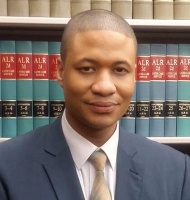Prospect Heights DUI-DWI Lawyers, Illinois
Sponsored Law Firm
-
 x
x

Click For More Info:
-
LaPapa Law Group
10704 S Western Ave Chicago, IL 60643» view mapAccident & Injury Law, Criminal Defense Changing Lives One Case At A Time
At LaPapa Law Group, we understand that life doesn’t always go as planned. We have the knowledge and experience needed to competently represent you in court.
800-694-2681
Sponsored Lawyers
1-10 of 19 matches
Criminal, DUI-DWI, Traffic, Felony, Misdemeanor
The Law Offices of Scott F. Anderson provides criminal defense representation throughout Cook County, Lake County, McHenry County and DuPage County. With over 23 years of experience practicing criminal law both as a prosecutor and now as a criminal defense attorney, Scott Anderson knows what most people are up against when they are charged and arrested for a crime. Scott F. Anderson practices experienced criminal defense in the follow matters: DUI Felony DUI Multiple DUI Violent Crimes Sex Crimes Theft Crimes Drug Crimes All Felonies and Misdemeanors All Traffic Violations Suspended Driver’s License Driver’s License Reinstatement Expungement
(more)Criminal, DUI-DWI, Expungement, Misdemeanor
For over 35 years, the experienced legal team at Mitchell S. Sexner & Associates LLC has helped our clients achieve successful conclusions during difficult times. Our compassionate and knowledgeable attorneys are ready to assist you 24 hours a day. Call us know to discuss your situation free of charge.
(more)Criminal, DUI-DWI, Personal Injury, Civil & Human Rights, Real Estate
Attorney Kendall D. Hartsfield is a graduate of Western Illinois University, Governors State University, and Thomas M. Cooley Law School, where he received his Bachelor of Arts degree in Political Science, Master of Arts in Political and Justice Studies, and Juris Doctorate, respectively. Mr. Hartsfield’s diverse background ranges from experience representing indigent defendants for the Will County Public Defenders Office to experience as an educator for the City Colleges of Chicago, for which he taught courses to pre-trial detainees at the Cook County Department of Corrections. Attorney Kendall D. Hartsfield is admitted to practice throughout the State of Illinois, and he is also admitted to practice before the United States District Court for the Northern District of Illinois. Mr. Hartsfield is also a member of the Trial Bar of the United States District Court for the Northern District of Illinois. To schedule a free consultation with Attorney Hartsfield, visit his website, or call 312-345-1700.
(more)Criminal, DUI-DWI, Traffic, Real Estate
Attorney Matthew R. Gebhardt is the founder and president of the Law Offices of Matthew R. Gebhardt, P.C. Located in Buffalo Grove, IL, Attorney Gebhardt focuses his practice on criminal defense and real estate law. Understanding that the legal system can be frightening, Attorney Gebhardt works with his clients in order to help them achieve their legal goals. To schedule a free consultation with Attorney Gebhardt, visit his website or call 847-239-4703.
(more)


 Gregory R. LaPapa Chicago, IL
Gregory R. LaPapa Chicago, IL Practice AreasExpertise
Practice AreasExpertise




